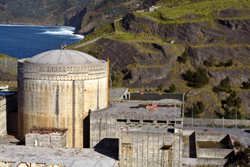Thermal stress and component failure in nuclear plants
As EUMember States come under pressure to reduce their carbon emissions, many are looking to extend the use of existing nuclear power plants (NPPs) or to construct new plants. France is a prime example. Its primary energy producer, Électricité de France (EDF), participated in a research project aimed at assessing the long-term risks associated with thermal fatigue. The project, entitled THERFAT, which was supported by Euratom, concentrated on Tee connections. While much is known about mechanical failure, little research had been carried out to date concerning thermal failure. Électricité de France logged considerable time in the laboratory subjecting model Tee connections to varying degrees of thermal stress. The goal was not only to reproduce conditions similar to those experienced in real NPPs, but also to simulate extreme thermal shocks. The results were encouraging as the components were able to withstand loads greater than those defined in the relevant specifications of the American Society of Mechanical Engineers. Thus, EDF was able to validate existing theory regarding component behaviour under thermal duress. In comparison with mechanical stress, it was learned that the number of load cycles for crack initiation is the same for thermal stress. However, while mechanically-induced cracks propagate and subsequently cause component failure, thermally-induced cracks tend not to spread significantly. Électricité de France stressed that the results apply not only to Tee connections, but also to other critical NPP components.



